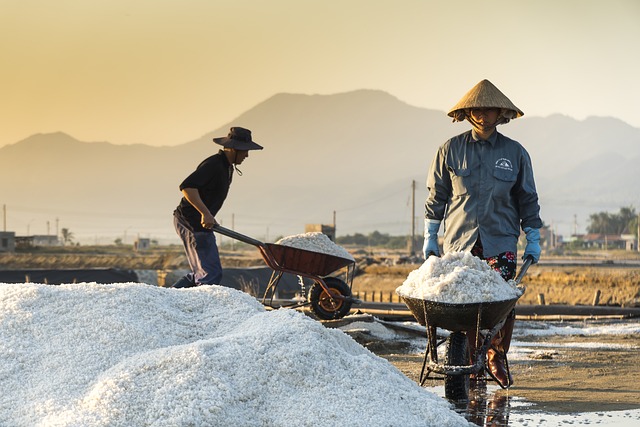
How does the concept of liberty apply to issues of cultural sensitivity and respect for the heritage and traditions of different communities in the context of global migration and refugee resettlement? This is a complex and multifaceted question that requires careful consideration. As an authority on the subject, I will guide you through this exploration using a listicle framework, presenting you with key insights and perspectives to deepen your understanding. So, let’s dive in!
1. Liberty as a Fundamental Human Right:
Liberty, often synonymous with freedom, is a fundamental human right that encompasses the ability to make choices and live without undue interference. However, it is important to recognize that liberty is not an absolute concept. It must be balanced with responsibilities and respect for the rights and liberties of others.
2. Cultural Sensitivity:
Cultural sensitivity refers to the awareness and understanding of different cultures, their values, beliefs, and practices. In the context of global migration and refugee resettlement, cultural sensitivity becomes crucial in promoting inclusivity and respect for the heritage and traditions of different communities. It involves recognizing and appreciating the diversity within societies and avoiding actions that may marginalize or discriminate against certain groups.
3. Respecting Heritage and Traditions:
Respecting the heritage and traditions of different communities is essential for maintaining cultural identity and fostering a sense of belonging. It involves acknowledging and valuing the customs, rituals, languages, and artistic expressions that make each community unique. By preserving and celebrating cultural heritage, societies can create an environment where individuals feel empowered to express their identities without fear of assimilation or erasure.
4. Liberty and Cultural Sensitivity in Migration:
When considering global migration, liberty plays a vital role in ensuring individuals have the freedom to seek better opportunities and escape persecution or conflict in their home countries. However, it is crucial that this liberty is exercised while being sensitive to the cultural norms and values of the host country. This includes learning and respecting the local language, customs, and laws, while also preserving one’s own cultural identity.
5. Refugee Resettlement and Cultural Sensitivity:
Refugee resettlement involves the relocation of individuals who have fled their home countries due to persecution or violence. In this context, liberty manifests as the freedom to seek safety and rebuild their lives in a new country. Cultural sensitivity becomes paramount in facilitating the integration of refugees into their host communities. By providing access to language training, cultural orientation, and support services, societies can create an environment that respects and values the heritage and traditions of refugees while promoting their successful integration.
6. Balancing Individual Liberty and Community Harmony:
While liberty is a cherished value, it is important to recognize that it must be balanced with the well-being and harmony of the broader community. In some cases, certain cultural practices may conflict with the principles and laws of the host country. Striking a balance between individual liberty and community harmony requires open dialogue, mutual understanding, and a commitment to upholding the rights and values that promote inclusivity, equality, and human dignity.
7. Education and Awareness:
Education and awareness are crucial in promoting cultural sensitivity and respect for heritage and traditions. By fostering intercultural dialogue, schools, communities, and organizations can promote understanding, empathy, and acceptance among individuals from diverse backgrounds. This not only enriches the fabric of society but also contributes to a more inclusive and harmonious coexistence.
In conclusion, the concept of liberty applies to issues of cultural sensitivity and respect for the heritage and traditions of different communities in the context of global migration and refugee resettlement by recognizing and balancing individual freedoms with responsibilities towards others. Cultural sensitivity and respect are essential for fostering inclusivity, preserving cultural identity, and promoting the successful integration of migrants and refugees. By embracing diversity, promoting education and awareness, and engaging in open dialogue, societies can create environments that uphold liberty while valuing and respecting the heritage and traditions of all communities.
Navigating the Complexities: Unveiling the Challenges of Refugee Resettlement in the United States
Navigating the Complexities: Unveiling the Challenges of Refugee Resettlement in the United States is a comprehensive exploration of the obstacles and intricacies involved in the process of resettling refugees in the United States. This research delves into the concept of liberty and its application to issues of cultural sensitivity and respect for the heritage and traditions of different communities in the context of global migration and refugee resettlement.
1. The Intersection of Liberty and Cultural Sensitivity:
One of the key challenges in refugee resettlement is striking a balance between the principles of liberty and cultural sensitivity. On one hand, the United States prides itself on the values of individual freedom and liberty. However, this can sometimes clash with the cultural heritage and traditions of different refugee communities. Respecting and accommodating these cultural differences while upholding the principles of liberty can be a delicate task.
2. Challenges in Preserving Heritage and Traditions:
Resettling refugees involves not only providing them with a safe haven but also ensuring that their heritage and traditions are preserved. This can pose challenges as refugees may face difficulties in maintaining their cultural practices in a new environment. Language barriers, limited access to resources, and discrimination can hinder the preservation of their cultural identity. Striking a balance between assimilation and the preservation of cultural heritage is essential for successful refugee resettlement.
3. Education and Awareness as Tools of Integration:
To address the challenges of cultural sensitivity and respect for heritage, education and awareness play a crucial role. By educating both refugees and the host community about each other’s cultures, stereotypes can be debunked, understanding can be fostered, and mutual respect can be cultivated. Initiatives such as cultural exchange programs, language classes, and community events can help bridge the gap between different communities and promote a harmonious coexistence.
4. Policy Considerations and Government Support:
Government policies and support play a vital role in facilitating cultural sensitivity and respect for heritage in refugee resettlement. It is crucial for policymakers to develop inclusive policies that acknowledge and respect the diverse cultural backgrounds of refugees. Adequate funding and resources should be allocated to support initiatives that promote cultural integration and preservation of heritage. By creating an environment that values and respects cultural diversity, the challenges associated with resettlement can be effectively addressed.
5. Community Engagement and Empowerment:
Engaging and empowering local communities is essential for successful refugee resettlement. By involving community members in the resettlement process, they can become advocates for cultural sensitivity and respect for heritage. Local organizations, religious institutions, and community leaders can play a pivotal role in fostering understanding and acceptance. Empowering refugees to share their cultural heritage and traditions can also help in building bridges and promoting mutual respect.
In conclusion, the concept of liberty in the context of global migration and refugee resettlement requires careful consideration of cultural sensitivity and respect for heritage. By addressing the challenges associated with preserving cultural identity, promoting education and awareness, formulating inclusive policies, and engaging local communities, the complexities of refugee resettlement can be navigated more effectively. The ultimate goal is to create a society that upholds the principles of liberty while embracing and celebrating the rich diversity of its refugee populations.
Embracing Differences: Unveiling the Remarkable Contributions of Refugees to Cultural Diversity
Embracing Differences: Unveiling the Remarkable Contributions of Refugees to Cultural Diversity
1. The concept of liberty and its application to issues of cultural sensitivity and respect for heritage and traditions:
– Liberty, in the context of cultural sensitivity and respect, refers to the freedom of individuals and communities to express and practice their cultural heritage and traditions without discrimination or prejudice.
– It recognizes that every community has its own unique set of beliefs, customs, and practices that contribute to the rich diversity of the world.
– Liberty requires that individuals and communities have the right to preserve, celebrate, and pass down their cultural heritage and traditions to future generations.
2. The impact of global migration and refugee resettlement on cultural diversity:
– Global migration and refugee resettlement have a significant impact on cultural diversity by bringing diverse communities together and enriching the cultural tapestry of host countries.
– Refugees, in particular, often bring with them a wealth of cultural knowledge, skills, and traditions that can contribute to the cultural vitality of their new communities.
– The resettlement of refugees provides an opportunity for host countries to learn from and appreciate the diverse perspectives and contributions that refugees bring.
3. The remarkable contributions of refugees to cultural diversity:
– Refugees have been instrumental in introducing new cuisines, music, art, and literature to their host countries, adding to the cultural vibrancy and creativity of these societies.
– They often bring unique skills and craftsmanship, contributing to the preservation and revitalization of traditional arts and crafts.
– Refugees also play a crucial role in promoting cultural understanding and tolerance by sharing their stories, experiences, and perspectives, fostering empathy and breaking down stereotypes.
4. The importance of embracing differences and promoting cultural inclusivity:
– Embracing differences is crucial for building inclusive and harmonious societies that value and respect the cultural diversity of their members.
– By recognizing and appreciating the contributions of refugees and their cultural heritage, societies can create an environment where everyone feels valued and empowered.
– Promoting cultural inclusivity involves creating opportunities for cross-cultural exchange, collaboration, and dialogue, allowing for the mutual enrichment and understanding of different communities.
5. The role of education and awareness in fostering cultural sensitivity and respect:
– Education plays a vital role in fostering cultural sensitivity and respect by providing individuals with the knowledge and understanding of different cultures, histories, and traditions.
– By incorporating diverse perspectives into educational curricula and promoting intercultural dialogue, schools can cultivate an appreciation for cultural diversity among students.
– Increasing awareness about the remarkable contributions of refugees to cultural diversity through media, public campaigns, and cultural events can also help challenge stereotypes and promote inclusivity.
In conclusion, the concept of liberty applies to issues of cultural sensitivity and respect by recognizing the importance of allowing individuals and communities the freedom to express and practice their cultural heritage and traditions. Global migration and refugee resettlement have a significant impact on cultural diversity, with refugees contributing remarkable skills, knowledge, and traditions to their host countries. Embracing differences and promoting cultural inclusivity is essential for building inclusive societies that value and respect the contributions of refugees. Through education and awareness, we can foster cultural sensitivity and respect, creating a world where the remarkable contributions of refugees to cultural diversity are celebrated and cherished.
The Global Plight: Unveiling the Harsh Realities and Challenges Faced by Refugees Worldwide
“The Global Plight: Unveiling the Harsh Realities and Challenges Faced by Refugees Worldwide” is a comprehensive exploration of the struggles and obstacles encountered by refugees across the globe. This powerful piece sheds light on the often overlooked aspects of the refugee experience, delving into the intricate web of issues they face, from cultural sensitivity to the preservation of heritage and traditions.
1. The Concept of Liberty:
The concept of liberty is deeply intertwined with issues of cultural sensitivity and respect for the heritage and traditions of different communities in the context of global migration and refugee resettlement. Refugees, who have been forced to leave their homes due to persecution or conflict, often encounter challenges in maintaining their cultural identity and traditions when they are resettled in a new country. Balancing the principles of liberty and cultural sensitivity requires a delicate approach, where the rights and freedoms of refugees are respected while also acknowledging and valuing their cultural heritage.
2. Cultural Sensitivity and Respect:
Cultural sensitivity and respect play a pivotal role in ensuring the successful integration and resettlement of refugees. It is essential to recognize and honor the diverse backgrounds, beliefs, and practices of refugees, as this fosters a sense of belonging and facilitates their social and cultural integration in their new communities. By embracing cultural diversity and actively promoting inclusion, societies can create an environment where refugees feel valued and empowered to preserve and share their heritage and traditions.
3. Challenges Faced by Refugees:
Refugees face a myriad of challenges in preserving their heritage and traditions while adapting to their new environment. Language barriers, discrimination, and limited access to resources can hinder their ability to maintain their cultural identity. Additionally, refugees may grapple with the dilemma of assimilation versus preservation, as they navigate the complexities of cultural integration. Striking a balance between embracing their new home and preserving their heritage is a delicate tightrope walk for many refugees.
4. Global Migration and Refugee Resettlement:
In the context of global migration and refugee resettlement, the principles of liberty must be applied to ensure the protection and well-being of individuals and communities. Governments and organizations involved in refugee resettlement must prioritize cultural sensitivity and respect for heritage and traditions. This entails providing resources and support for refugees to preserve and celebrate their cultural practices, while also encouraging their active participation in the broader society. By creating an inclusive and supportive environment, the challenges faced by refugees can be mitigated, allowing them to thrive and contribute to their new communities.
In conclusion, the concept of liberty is deeply intertwined with cultural sensitivity and respect for the heritage and traditions of different communities in the context of global migration and refugee resettlement. Understanding and addressing the challenges faced by refugees is crucial for creating a more inclusive and compassionate world. Through a balanced approach that values both individual liberties and cultural diversity, we can work towards a future where refugees can rebuild their lives while preserving their rich heritage and traditions.
In conclusion, the concept of liberty plays a crucial role in addressing issues of cultural sensitivity and respect for the heritage and traditions of different communities in the context of global migration and refugee resettlement. It is essential to recognize and uphold the fundamental rights and freedoms of individuals, while also promoting understanding and acceptance of diverse cultural backgrounds.
**What role does liberty play in addressing cultural sensitivity and respect for heritage and traditions?**
Liberty allows individuals the freedom to express and practice their cultural heritage and traditions without fear of discrimination or suppression. It ensures that people have the autonomy to preserve and pass down their cultural values and customs to future generations.
**How does liberty promote understanding and acceptance of different communities?**
By upholding liberty, individuals are encouraged to engage in open dialogue and learn about the diverse cultures and traditions of different communities. This fosters mutual understanding, empathy, and respect, leading to a more inclusive and harmonious society.
**What challenges arise in balancing liberty and cultural sensitivity?**
The challenge lies in finding a balance between preserving individual liberties and respecting the sensitivities of different cultures. It requires thoughtful consideration and a willingness to engage in respectful dialogue to navigate cultural differences while upholding basic human rights.
**How can liberty be safeguarded in the context of global migration and refugee resettlement?**
To safeguard liberty, it is crucial to ensure that policies and practices surrounding migration and refugee resettlement respect the rights and freedoms of individuals. This includes providing access to education, healthcare, and employment opportunities, as well as creating inclusive communities that celebrate diversity.
In conclusion, liberty is a foundational principle that guides the approach to cultural sensitivity and respect for the heritage and traditions of different communities in the context of global migration and refugee resettlement. By upholding individual liberties, promoting understanding and acceptance, and navigating cultural differences with respect, societies can create a more inclusive and harmonious world. It is through the recognition and protection of liberty that we can foster a global community that values and celebrates the richness of diverse cultures.









Do refugees enrich or dilute cultural heritage? Lets discuss and debate!
Should cultural sensitivity trump liberty in refugee resettlement? Lets discuss!
Should refugees assimilate or preserve their cultural heritage in host countries?
Is cultural sensitivity hindering assimilation or preserving diversity in refugee resettlement? Lets discuss!